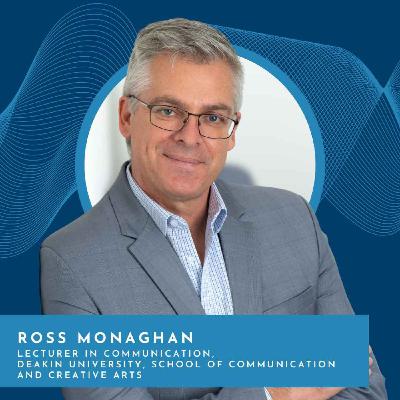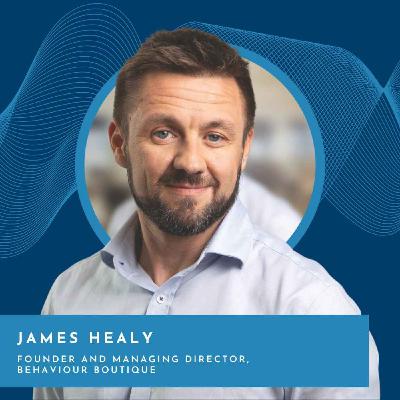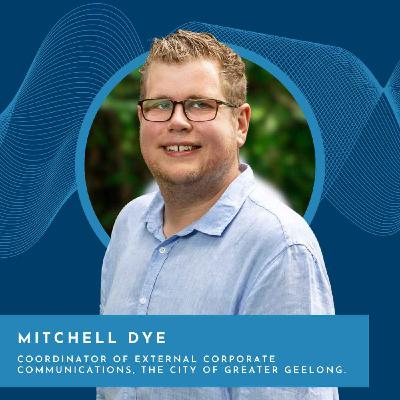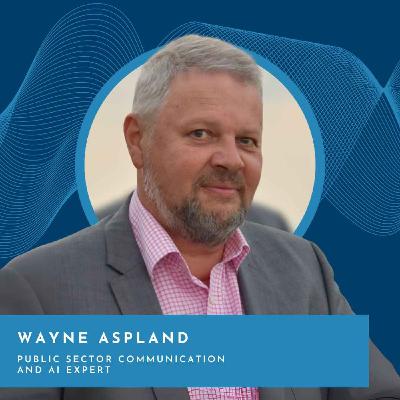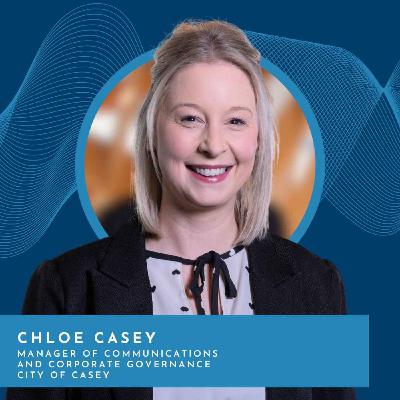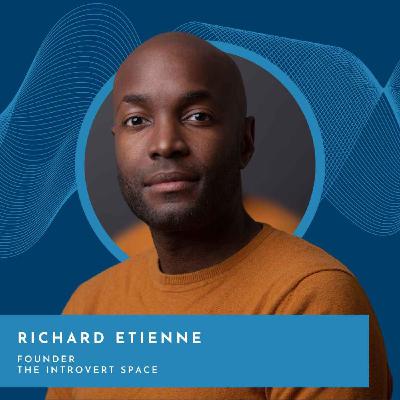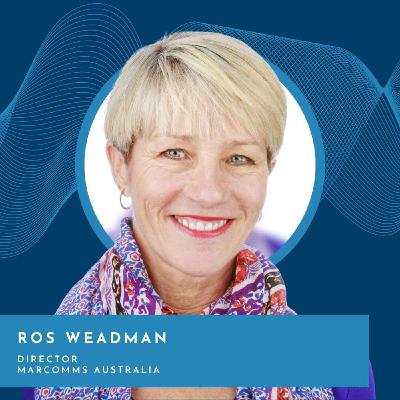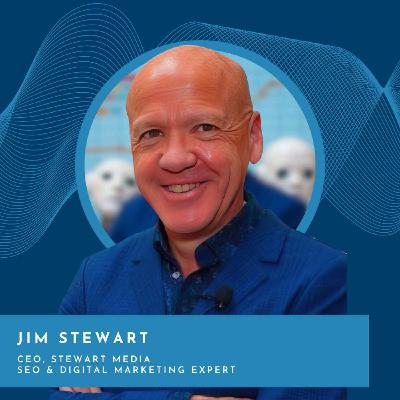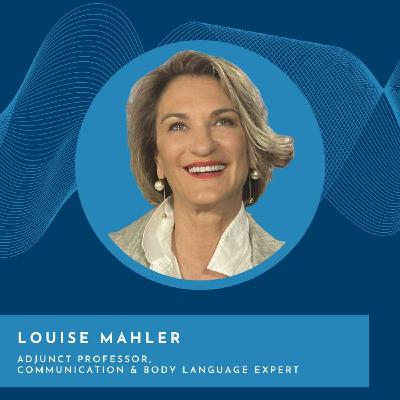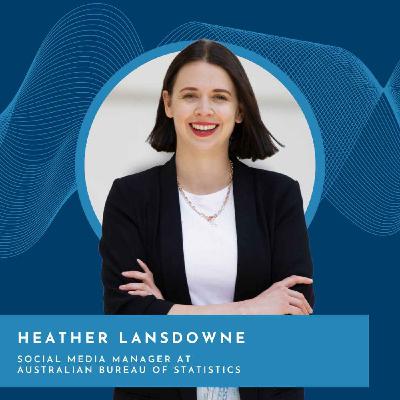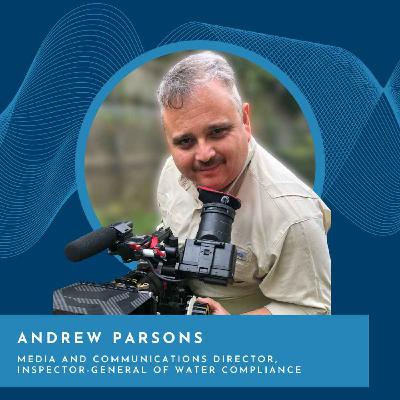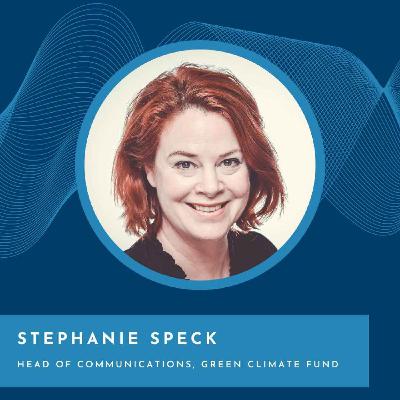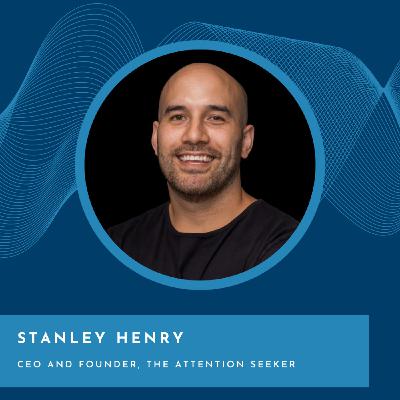Discover GovComms: The Future of Government Communication
GovComms: The Future of Government Communication

GovComms: The Future of Government Communication
Author: contentgroup
Subscribed: 18Played: 60Subscribe
Share
© contentgroup
Description
Through conversation with industry greats, experts and innovators from around the world, GovComms delivers the latest insights and best practice in government communication. We provide the resources to help you, the government and public sector, communicate policies, services and regulations with impact. A podcast by contentgroup, leaders in government communication.
Watch our episodes in video on contentgroup's YouTube channel.
Hosted on Acast. See acast.com/privacy for more information.
353 Episodes
Reverse
In this episode of the Collective Engagement for Social Purpose podcast series, we are in conversation once again with the University of Adelaide’s Dr. Taylor Willmott and Professor Jodie Conduit for the sixth and final instalment of the series. Jodie is the lead investigator on the Australian Research Council (ARC) funded ‘Collective Engagement Towards Social Purpose’ project, and has been working closely with Taylor on the analysis of qualitative data from interviews with community engagement managers and leaders of social purpose organisations. She stresses the importance of storytelling as a tool for leaders to connect with people. It's only with that really deep understanding and almost feeling the emotional connection as well, that for someone having gone through it, that we can start to have a common understanding of where we want to go and really connect with those people. – Professor Jodie Conduit Also joining us in this episode is Dr. Taylor Wilmott, a member of the University of Adelaide's research team for the Collective Engagement for Social Purpose research project. She emphasises the importance of the leader being a participant in workshops to ensure everyone feels like their voices will be heard. The leader has to be there as a participant and someone who is managing their power dynamics in the room and is able to step back, and recognise that everyone has unique strengths and weaknesses including themselves, and how best can we leverage them and make sure that everyone feels like their voice will be heard in the room. – Dr. Taylor WillmottThe conversation focuses on 7 tips for effective leadership in collective engagement:People-first.Make it tangible.Create access points.Get the right people in the room.Create a safe space.Empower people.Celebrate success. Hosted on Acast. See acast.com/privacy for more information.
In this episode of the Collective Engagement for Social Purpose podcast series, we chat with Prof Ingo Karpen who is a Professor of Business and Design at the University of Adelaide and Karlstad University in Sweden. Ingo is also a Chief Investigator on the Collective Engagement for Social Purpose project, with a strong interest in improving lives and systems, and a desire to work with researchers and entrepreneurs to effect positive social change in various contexts.In conversation with our host David Pembroke, Ingo explores the role of human connections and relationships in collective engagement, with a particular focus on the importance of compassion.When it comes to social change, there is far less talk of compassion. Often, we look at charts, figures. We're interested in performance indicators. We try to assess the way we have performed in various ways, but often we don't put enough primacy on the on the human beings involved. It's a really fundamental phenomenon in society that can make a difference on a on a daily basis. – Prof Ingo KarpenAlso joining us in this episode is Dr. Taylor Wilmott, a member of the University of Adelaide's research team for the Collective Engagement for Social Purpose research project. She provides further insights into building compassionate communities.I think in terms of creating compassionate communities, there's two sides. There's the bottom up side to creating a compassionate community where it's really community members that are driving the collective and the change. The other side is the top-down model where policy changes in government or health systems are what further change and potentially what enable community members to feel empowered. – Dr Taylor WillmottDiscussed in this episode:The importance of human connections and relationships in collective engagementMechanisms for transitioning from individual engagement to collective engagement to achieve changeUnderstanding and practicing compassion in engaging othersPromoting positivity, purpose, and avoiding blame and judgment in collective engagement. Hosted on Acast. See acast.com/privacy for more information.
"This story of Orange Sky really started a few years, before Orange Sky got kicked off in high school, my best mate, Nic and I went to school together and our school actually ran a food service for people doing it tough. So we had this opportunity when we were 15, to head out, cook breakfast for people, a kilometre from where we went to school who were sleeping in the park or sleeping, crisis accommodation centres around that centre." - Lucas Patchett In the latest episode of the Collective Engagement for Social Purpose podcast series, we chat with Lucas Patchett whos is the co-founder of Orange Sky alongside his best mate Nic Marchesi. Orange Sky is a platform that provides " for every day Australians to connect through a regular laundry and shower service. The focus is on creating a safe, positive and supportive environment for people who are too often ignored or who feel disconnected from the community. Our volunteers are not social workers or experts on homelessness - they are empathetic listeners and great conversationalists."Dr. Taylor Wilmott, a member of the University of Adelaide's research team for the Collective Engagement for Social Purpose research project, also joins us in this episode."So we spoke about a different food van, we spoke about showers in the first instance to, but then we said, "Well, actually let's just do one thing, do it well, give it a go and then we can build on it from there." And that I think has been a really key foundation to what we do now. It's really simple. It's doing a couple of things really well and then plugging in and collaborating with other service providers to make the biggest impact possible." - Lucas PatchettDiscussed in this episode: The importance of prioritising one thing at a time. How to overcome challenges and flip roadblocks into positive outcomes. Why you should have a clear and simple vision.To check out everything Orange sky does head to: https://orangesky.org.au/ Hosted on Acast. See acast.com/privacy for more information.
"Our collective governance has evolved over time... based on what we've learned and what the opportunity is and who's involved. So, it's never a static thing... We're always open to going, "Oh, this is how we should pivot," or, "This is how we should reframe what we're about," ... we're looking at ... bringing new people to the table to help us think about how we can get more impact." - Tiffany Petre In the latest episode of the Collective Engagement for Social Purpose podcast series, we chat with Tiffany Petre, Director of The Obesity Collective as well as Dr.Taylor Willmott. The Obesity Collective is a national platform for committed individuals and organisations from across the community who are taking on the obesity challenge together from a whole-of-society and systems perspective. "[People] don't understand the many environmental drivers [of obesity]...For example, many healthcare professionals or the everyday person in Australia wouldn't know that when you lose a lot of weight, your hunger hormones increase and your metabolism decreases, and that fights people's ability to maintain weight loss or lose weight." - Tiffany With host, CEO of contentgroup, David Pembroke, Jodie and Tiffany discuss how to impact change through shared purpose."The complexity of some of the issues that are being faced, particularly in public health, are characteristic of problems that do not have one solution ... Everyone has their only invested interest in the problem, and that just makes solving a problem so much more difficult.... we've seen ... [that] understanding how you can bring diverse groups of people together to focus on a shared purpose and a common vision [is so important]. " - Dr. Taylor WillmottImportant Links for this episode: The Obesity Collective website: https://theobesitycollective.org.au/The Weight Issues Network website: https://weightissuesnetwork.org/The Obesity Evidence Hub: https://www.obesityevidencehub.org.au/A Public Health Research and Practice series on obesity and the narrative: https://www.phrp.com.au/issues/october-2022-volume-32-issue-3/ Hosted on Acast. See acast.com/privacy for more information.
In a new series for GovComms we will be going along for the ride to follow the journey of the University of Adelaide's latest multi-year, multi-phase research project, which is called Collective Engagement for Social Purpose.For this new series, we will regularly be joined by Dr. Taylor Willmott and Professor Jodie Conduit, who are from the university's business school.In this weeks episode, we catch up with Jodie and Taylor to discuss some their key findings so far.As a recap, the project emerged as a culmination of several projects and research across several sectors. However, all projects and research had in common one thing... how organisations could better engage with their stakeholders to drive improvements in both their products and the service offering's. This latest research comes from the position that stakeholders aren't passive recipients, that they are people that you want to engage with to make change, to work better with them, and to really drive that enhancement in everything that you do."In the interviews, respondents have discussed shared purpose and a sense of social purpose in slightly different but related ways. I think ultimately it's our why. It's your reason for existing and for being. They spoke about things like, "It's our DNA. It's actually our North Star and the things that we're striving to achieve, but ultimately it's something that we all align on and can connect with in some way." - Dr. Taylor WillmottDavid, Jodie and Taylor discuss factors that can help create that sense of sharedness ("if that's a word" - David). Alignment for all parties is one aspect the others being transparency and clarity."Getting people all on board and getting aligned in their understanding with a shared purpose is actually a concept that has challenged us a little bit in understanding it because in our interviews, people talk about the need to have alignment and a shared purpose, but they also talk about the need to have diversity and different opinions and different roles and different people at the table" - Professor Jodie ConduitFor the NHS paper mentioned in this episode head to: https://blog.govcommsinstitute.com/podcast/what-we-found-collective-engagement-for-a-social-purpose For more information about this research: https://business.adelaide.edu.au/collective-engagement-for-social-purposeIf you have any questions about this episode or would like to get involved in this research please reach out to Dr. Taylor Willmott via: taylor.willmott@adelaide.edu.au Hosted on Acast. See acast.com/privacy for more information.
In a new series for GovComms we will be going along for the ride to follow the journey of the University of Adelaide's latest multi-year, multi-phase research project, which is called Collective Engagement for Social Purpose.For this new series, we will regularly be joined by Dr. Taylor Willmott and Professor Jodie Conduit, who are from the university's business school.The project emerged as a culmination of several projects and research across several sectors. However, all projects and research had in common one thing... how organisations could better engage with their stakeholders to drive improvements in both their products and the service offering's. This latest research comes from the position that stakeholders aren't passive recipients, that they are people that you want to engage with to make change, to work better with them, and to really drive that enhancement in everything that you do."We were thinking about how we can bring people together to generate, not just engagement at an individual level, but engagement really at a collective level, where we know from work that we'd done to drive change in any sector... But, we need to have engagement among groups. And we wanted to do that in a really meaningful context. And we didn't want to be, I guess, tied down to any one sector. So we started to think about this notion of collective engagement towards, or driving a real social purpose in society. And, our discussions really took off from there." - Jodie ConduitThe project will advance knowledge on how managers, consultants, and leaders can cultivate a shared commitment among a group of individuals or team toward a common cause that benefits the broader community and their environment.The trio also discuss how Government can play a crucial role in bringing together community initiatives to help drive behaviour change."I think government really is an enabler, a facilitator of change. But I think more than that, when we get movements happening that have become bottom up movements, ultimately, you do need someone to come in and provide some level of structure and organisation. And, for real change to happen in the long term, you really do need the government to take ownership and share responsibility." - Dr. Taylor WillmottFor more information about this research head to: https://business.adelaide.edu.au/collective-engagement-for-social-purposeIf you have any questions about this episode or would like to get involved in this research please reach out to Dr. Taylor Willmott via: taylor.willmott@adelaide.edu.au Hosted on Acast. See acast.com/privacy for more information.
What does it take to thrive as a communicator in a rapidly changing world?In this episode of GovComms, David Pembroke speaks with Ross Monaghan, award-winning educator and communications leader from Deakin University. From his early days as a teenage journalist in Warrnambool to senior roles at Optus and the Australian Mobile Telecommunications Association, Ross has seen the profession evolve from every angle.Ross shares why persistence and curiosity matter, how communicators can show leadership at any stage of their career, and why “dreaming big” is vital. He also unpacks the opportunities and risks of artificial intelligence, urging communicators to take the lead on its ethical use.Discussed in this episode:Lessons from Ross’s early career in journalism and industry.Building confidence to chase opportunities others might not.Why leadership is about action, not job titles.Creating stronger workplace culture through human connection.Open, honest communication as a tool for solving conflict.The communicator’s role in guiding ethical AI adoption.Show notes:International Association of Business Communicators | IABCPanuara South community benefits from new Optus mobile tower | OPTUSAI Workshops | Ross MonaghanHypeCloudAI podcast | Ross MonaghanRoss Monaghan | LinkedInBlog | GovComms PodcastLinkedIn | GovComms Hosted on Acast. See acast.com/privacy for more information.
What if everything you thought you knew about effective communication was wrong?In this episode, host David Pembroke speaks with James Healy, founder of The Behaviour Boutique and co-author of BS at Work. James has worked in more than 60 countries and brings deep insights from behavioural science, anthropology, and psychology to the challenges facing modern organisations and governments.James unpacks why so much of work is “BS” and why policies often fail to change behaviour. He shows how context shapes decisions, why storytelling matters, and shares the simple EAST framework to help communicators cut through.Discussed in this episode:James’s path from economics to behavioural scienceLessons from the global financial crisisWhy massive handbooks never change behaviourHow culture and incentives drive decisionsWhere governments use behavioural science wellQuick wins for communicators on timing and deliveryShow notes:BS at Work: Why So Much of Modern Work is BS and How Behavioural Science Can Make It Better | James HealyThe Behaviour BoutiqueAdopting AI: The People First Approach | James Healy, Paul GibbonsThe EAST framework | The Decision LabJames Healy | LinkedInThe B Word | Podcast by James HealyBehavioural Science | OECD ReportBlog | GovComms PodcastLinkedIn | GovComms Hosted on Acast. See acast.com/privacy for more information.
What do bushfires, TikTok, and police comms have in common?For Kendall Masters, they’ve each shaped a sharp, no-nonsense approach to government communication.In this episode, she joins David Pembroke to unpack what it really takes to build trust, cut through the noise, and connect with the public — especially when time and attention are in short supply.Kendall shares lessons in agility, authenticity, and strategic clarity, from rolling out TikTok with Victoria Police to managing emergency comms during the 2019–20 bushfires and COVID-19. They explore the limits of video, the myth of reach-for-the-sake-of-it, and why good reporting is about more than numbers — it’s about telling the right story to the right people.Discussed in this episode:Moving from traditional media to digital-first commsLessons from bushfire and COVID-19 emergency responseWhen video works — and when it doesn’tLaunching TikTok with Victoria PoliceDitching vanity metrics for meaningful reportingBuilding skilled, strategic comms teamsShow notes:TikTok | Victoria PoliceBlog | GovComms PodcastLinkedIn | GovComms Hosted on Acast. See acast.com/privacy for more information.
Is your comms team keeping up, or just keeping busy?In this episode of GovComms, David Pembroke sits down with Mitchell Dye, the dynamic voice behind the City of Greater Geelong’s external communications. From community radio to leading digital strategy, Mitchell shares a front-row view of how local government is reinventing the way it engages with citizens—one authentic story at a time.David and Mitchell unpack what it takes to stand out in the crowded digital landscape, why the best communicators aren’t always in the comms team, and how to build trust through relatable, local voices. With fresh insights from years of hands-on experience, Mitchell offers a practical roadmap for future-proofing local government communication.Discussed in this episode:Reinventing comms in local governmentAuthentic storytelling vs polished brandingWhat community radio taught Mitchell about public commsFinding trusted voices beyond the comms teamManaging 24/7 comms without burning outShow notes:Planner | Microsoft94.7 The Pulse | Geelong Community RadioBlog | GovComms Podcast Hosted on Acast. See acast.com/privacy for more information.
How will AI reshape the future of government communications—and what skills will you need to thrive?In this episode of GovComms, host David Pembroke is joined by Wayne Aspland, expert in public sector communication and AI strategy, to explore how artificial intelligence is transforming the role of communicators today and into 2030.Wayne shares how government teams can build AI capability, drive strategic alignment, and stay trusted in an era of rapid technological change. He also explains why human creativity, leadership, and critical thinking will be even more essential as automation accelerates.Discussed in this episode:How AI is reshaping communication rolesAchieving alignment across complex teamsBuilding AI skills as a teamManaging AI risks with clear guardrailsShow notes:Day in the life of a comms person in 2030 | Wayne AsplandState of the Sector report | GallagherBlog | GovComms Podcast Hosted on Acast. See acast.com/privacy for more information.
What happens when your council loses public trust—and you’re the one answering the questions?In this episode of GovComms, host David Pembroke speaks with Chloe Casey, Manager of Communications and Corporate Governance at the City of Casey, about leading through the fallout of the Operation Sandon investigation.Chloe shares how her team managed misinformation, community confusion, and the absence of elected councillors for almost five years, all while ensuring communications remained clear, composed, and responsive.She also reveals how they’re using AI, short-form video, and cold outreach to connect with the City of Casey, home to one of Australia’s most culturally and linguistically diverse communities. Her insights offer practical guidance for any government communicator navigating through change.Discussed in this episode:Leading through crisis with clarity and speedCombining comms and governance for stronger responsesEngaging CALD communities with targeted outreachUsing AI, video, and plain English to boost impactShow notes:Brolly | Social Media ManagementBlog | GovComms Podcast Hosted on Acast. See acast.com/privacy for more information.
What if the best ideas in your team are the ones you never hear?In this episode of GovComms, host David Pembroke speaks with Richard Etienne—internal communications expert, author of The Introvert’s Survival Guide, and founder of The Introvert Space. Together, they explore how introverts can lead, influence, and thrive in workplaces that often reward volume over value.From overcoming self-doubt to navigating hybrid work, Richard shares powerful, practical strategies to help introverts find their voice—without having to shout. He also offers advice for leaders on how to build inclusive teams where every personality type can succeed.Whether you identify as an introvert, manage one, or simply want to create more inclusive and effective teams, this episode is packed with eye-opening insights and actionable tips.Discussed in this episode:Why introverts often go unheard—and how to change thatHow to build your personal brand without self-promotionThe hidden strengths introverts bring to leadershipWhat Theresa May taught Richard about quiet influence at the topShow notes:The Introvert Space | Richard EtienneThe Introvert’s Survival Guide | Richard EtienneQuiet | Susan CainBlog | GovComms Podcast Hosted on Acast. See acast.com/privacy for more information.
Trust is on life support. People are tuning out. Tech is speeding up. Noise is everywhere. So how can government communicators break through?In this powerhouse episode of GovComms, host David Pembroke is joined by Ros Weadman – strategic communication expert, author, and driving force behind the Elevate Local Government Communications Summit 2025 – to unpack what it really takes to cut through and connect in today’s chaotic communication landscape.Ros doesn’t pull punches. With four decades in the game, she makes it clear: the old ways of pushing messages just won’t cut it. It's time to ditch the jargon, lead with heart, and communicate with courage.This is more than an episode—it’s a call to arms for public sector communicators who want to build trust, lead with purpose, and transform how government speaks to the people it serves.Discussed in this episode:How to ditch “message selling” and embrace bold, emotional storytellingThe real reason people feel disconnected—and how to bring them backHow to paint a vision people can believe in (and see themselves in)What’s broken in community engagement—and how to fix itWhy communicators must stop hiding behind process and step up as leadersShow notes:Elevate Local Government Communication Summit | GOVCOMMEvaluation Framework for Strategic Communication | PRIABlog | GovComms Podcast Hosted on Acast. See acast.com/privacy for more information.
Is Google still the king of search or has AI changed the game forever?The way people find information is undergoing the biggest shift in decades and government communicators can’t afford to be left behind. In this episode of GovComms, host David Pembroke speaks with Jim Stewart, CEO of Stewart Media, about the seismic shift in digital search and what it means for public sector communication.A 25-year SEO veteran, Jim explains why this transformation is as significant as the birth of the internet and how government agencies can stay visible in AI-driven searches. From optimising government websites for AI-driven platforms to ensuring search bots can access critical public information, Jim breaks down the practical strategies to stay ahead.This isn’t just another tech trend – it’s a fundamental shift in how people find and use information. If you're in government communications, you can’t afford to ignore it. Tune in now to learn how to keep your content discoverable, credible and ready for the AI era.Discussed in this episode:Learn how AI is reshaping search and SEO strategies.Discover why government communicators must adapt to AI search.Find out how to keep public sector content visible online.Expert tips on optimising websites for AI bots.Explore AI tools that enhance communication and accessibility.Understand the future of government messaging in the AI era.Show notes:NotebookLM | GoogleChatGPT | OpenAITrends | GoogleHow Robots.txt works | GoogleBeyond Google: Mastering Search in A World Of AI Assistants | Jim StewartWebsite | StewArt MediaBlog | GovComms Podcast Hosted on Acast. See acast.com/privacy for more information.
Great communicators aren’t born—they’re made.In this episode of GovComms, host David Pembroke chats with Dr. Louise Mahler, an expert in leadership communication, about the art of presence, authenticity, and confidence. With a background in business and opera, Louise brings a unique perspective to what makes a great communicator—and why government professionals need to master these skills.Louise shares practical techniques to improve public speaking, from voice control and body language to storytelling and audience engagement. She explains the power of the "rule of three", how to structure compelling messages, and why good communication starts with breathing and body awareness.Whether you’re presenting to stakeholders, leading a team, or engaging the public, this episode is packed with actionable insights to help you command attention and build trust. If you want to captivate, connect, and communicate with impact, this is the masterclass you need.Discussed in this episode:Gravitas builds trust through presence, authenticity, and confidence.Strong delivery relies on voice, body language, and gestures.The rule of three makes messages clear and memorable.Overcome self-doubt with mantras and better posture.Storytelling, humour, and connection keep audiences engaged.Breathing and structure improve communication impact. Show notes:Website | Louise MahlerGravitas | Louise MahlerThe 5 Canons of Classical Rhetoric | ThoughtCoThe Rule of 3 | Leadership GardenGovComms Podcast | Blog Hosted on Acast. See acast.com/privacy for more information.
Governments generate endless information, but so much of it goes unseen. So, how do we turn it into content people actually care about?In this episode of GovComms, David Pembroke chats with Heather Lansdowne, a leader in transforming social media in government. As the social media manager at the Australian Bureau of Statistics, Heather and her team are turning heads in the government space, proving that data can be engaging, relatable, and even fun. She’s helped reshape how agencies communicate, bringing bold ideas and engaging content to the table. Her fresh approach connects with audiences in ways traditional comms never could.From navigating government approvals to making stats go viral, Heather shares how agencies can rethink their content strategy. She talks about building trust with leadership, using humour to engage audiences, and why governments need to act more like digital publishers. Whether you're a social media pro or a government communicator looking to push boundaries, this episode is full of insights, strategies, and inspiration to help you create content that truly connects.Discussed in this episode:Making government content engaging by turning reports into stories.Building trust with leadership to get buy-in for social strategies.Using humour to make statistics fun and relatable.Navigating approvals while staying compliant.Exploring social media trends in government.Showcasing ABS’s social media success.Show notes:Data Release Calendar | ABSGraphic Design App | CanvaSocial media | ABSGovComms Podcast | BlogTranscript:A transcript of this episode can be found here. Hosted on Acast. See acast.com/privacy for more information.
Buckle up for an episode packed with creativity, innovation, and a bit of storytelling magic!In this first GovComms Podcast of 2025, David Pembroke sits down with Andrew Parsons, a communication powerhouse with a knack for turning challenges into storytelling gold. From his humble beginnings as a cameraman to transforming public sector communication strategies, Andrew’s career is proof that creativity thrives when bold ideas meet action.Step into the evolving world of public sector content as Andrew reveals how he built massive social media followings, pioneered video content, and ran communication teams like newsrooms—fast, fearless, and focused. He’ll also share why 2025 is the year for governments to embrace new technology, leverage podcasts, and connect with citizens like never before.Packed with practical tips and fresh perspectives, this episode will leave you inspired to level up your content strategy.Discussed in this episode:Turning challenges into powerful stories.Why 2025 is the perfect time to rethink your content strategy.The secret to building trust and support for bold communication ideas.Running comms teams like newsrooms—speed and creativity in action.Andrew’s journey from behind the camera to leading communication innovation.Show notes:Water’s Edge – The Podcast | IGWCGovComms Podcast | Blog Hosted on Acast. See acast.com/privacy for more information.
Today, we’re revisiting one of the most impactful episodes of GovComms! Stephanie Speck, Head of Communications for the Green Climate Fund, shares how authentic storytelling can transform the climate conversation.Explore the power of "Story Sovereignty," a revolutionary approach that empowers climate-impacted communities to tell their own stories—humanising the issue and making it deeply relatable. Stephanie also takes us inside the Green Climate Fund’s evolution, shifting from output-focused tactics to strategies that prioritise reputation, relationships, and global impact.She doesn’t stop there. Tackling the challenge of misinformation, Stephanie reveals practical ways to counter false narratives, build trust, and foster consensus in the fight against climate change. Whether it’s your first listen or a revisit, this episode is packed with actionable insights to inspire meaningful climate communication.Discussed in this episode:Co-designing climate strategiesLeveraging AI for efficiencyAddressing misinformation challengesBuilding trust through transparencyEmpowering authentic storytellingStrengthening stakeholder collaborationShow notes:Stephanie Speck | LinkedInGovComms Podcast | Blog Hosted on Acast. See acast.com/privacy for more information.
Happy New Year! We’re starting 2025 by revisiting an inspiring chat between host David Pembroke and Stanley Henry, founder of The Attention Seeker. They discuss storytelling, strategy, and building a thriving content agency.Stanley takes us on his journey from growing up in South Auckland and working in hospitality worldwide to becoming a LinkedIn success story. His mastery of personal branding on the platform gave him the confidence to launch his own agency, which now boasts a team of 31 and is gearing up to expand to New York.He shares invaluable lessons on storytelling and social media strategy, offering practical tips on engaging audiences across platforms. Drawing from his hospitality background, Stanley reveals how those experiences shaped his leadership and business growth.This episode is packed with advice on creating authentic brand messages, balancing internal and client content, and embracing strategic storytelling to thrive in the ever-changing digital landscape. Stanley also reflects on the evolution of his business and the exciting future ahead.Discussed in this episode:Using LinkedIn strategicallyAuthentic storytelling techniquesTailoring content by platformAligning brands with human truthsDriving business growth strategicallyShow notes:Stanley Henry | LinkedInThe Attention Seeker | TikTokThe Attention Seeker | WebsiteGovComms Podcast | Blog Hosted on Acast. See acast.com/privacy for more information.








